
MARKETPLACE FOR MOBILITY
Urban logistics and freight transport have a major impact on mobility in the city, port and region. On the other hand they also suffer from congestion.
This leads to a sense of urgency among key stakeholders. With the Marketplace for mobility the city of Antwerp wants to actively contribute to smart and efficient urban logistics and freight transport, in co-creation with the sector.
FACTSHEET 10
LOGISTIC SOLUTIONS
Results, findings & lessons learned
More info
|
|
Context & challenges
CONTEXT & CHALLENGES
The specific objectives of this measure are:
A reduction of logistic/freight road trips in congestion-affected areas in the city and port of Antwerp. The aim is to facilitate 20 projects in total during the CIVITAS PORTIS project which would lead to a reduction of 3.100 truck rides/year/project.
The measures includes:
A. Creation of a cooperation platform - marketplace for mobility:
With the development of a cooperation platform, i.e. the Marketplace for Mobility (aimed at solutions for both passenger and freight transport), the city of Antwerp takes the lead and supports organizations, companies, retailers, catering industry and small businesses to develop sustainable logistic solutions for their freight movements. Interested parties can become partner of Smart Ways to Antwerp and receive communicational support. Next to that, the city also regularly launches project calls, looking for passenger and/or freight transport solutions. The selected projects receive active support from Smart Ways to Antwerp. This can include financial support as well, which is a result-based cash-back model. Selected projects receive funding only if they deliver what they promise in their KPIs. In the long-term, the goal is for the target groups.
- Efficient city logistics: bundling of goods and eco-friendly inland waterway transport.
- Avoiding empty shipping containers on the city roads by using drop-off/pick-up depots outside the city.
- Avoiding traffic in congested city areas by opening urban delivery hubs outside the city.
- Encourage sustainable urban logistic solutions such as bike couriers.
- Time shift: technical & financial support for the transportation of goods during the night.
B. Know-how transfer activities:
This measure contains of analyzing best practice solutions, organizing workshops and seminars and liaise with other experts in the field.
C. Improving the communication among stakeholders:
By involving all departments and projects related to transport and mobility.
D. Development of a vision and policy:
The vision and the following SULP (= Sustainable Urban Logistics Plan) is to be developed, approved by the council and transformed into an action plan.
• Suggested consideration 1: Mapping the context and barriers in the sector beforehand can ease and speed up the process in the long term.
• Suggested consideration 2: Marketing activities such as press events can act as a driver for the successful implementation and long-term success of the measure as this increases visibility and creates ownership among all involved stakeholders.
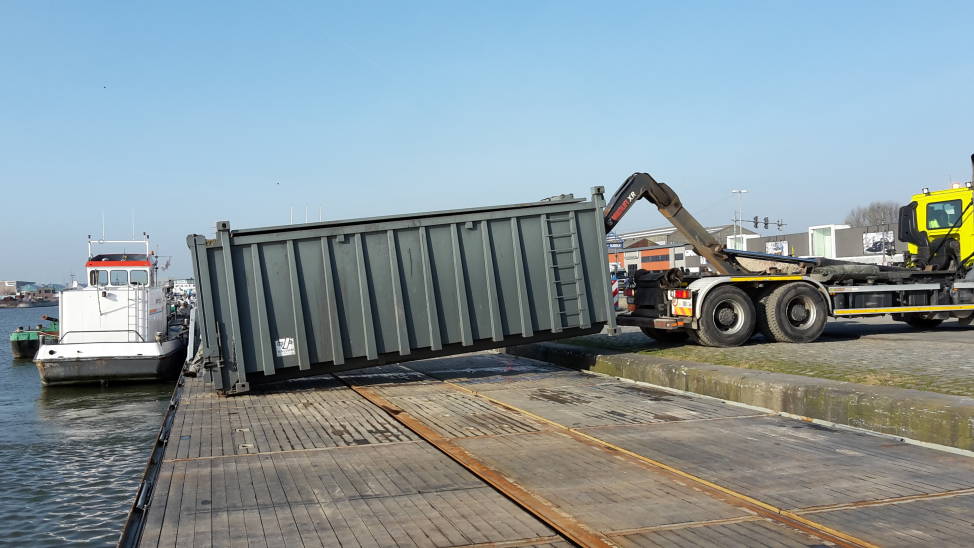
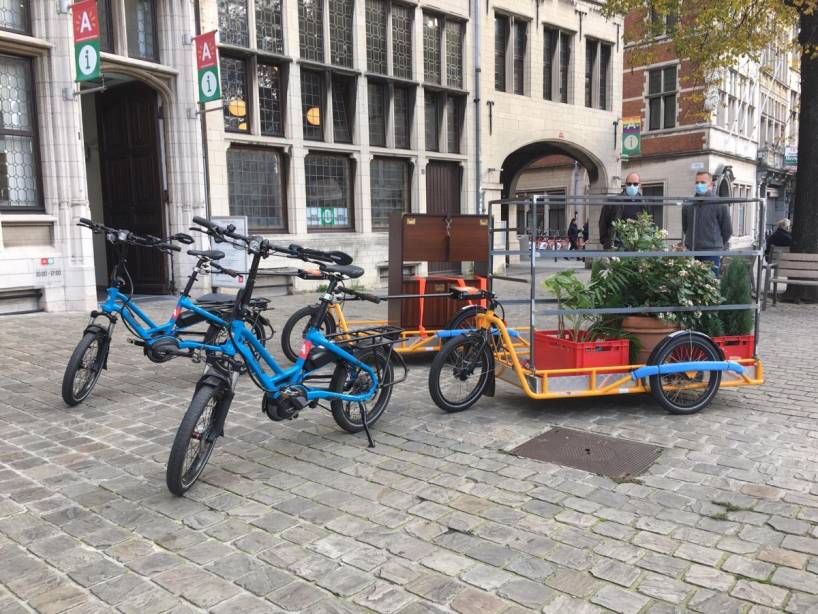
& LESSONS LEARNED
There has been a significant reduction in numbers of logistic trips thanks to the implemented measures in the three project calls during the lifetime of CIVITAS PORTIS.
• Key result 1: Political support is essential.
• Key result 2: Regular meetings between companies who benefit from the measures, decision-makers and those working on city logistics are useful to map both problems and potential solutions at an early stage, taking everyone’s opinions into account.
• Recommendation 1: The city and port of Antwerp should continue to play a leading role to support sustainable logistic solutions in order to achieve the best possible results.
• Recommendation 2: A wide network of partners is recommended in order to achieve a wide-scale impact and results.
• Recommendation 3: To gain full insight on the effects / success of the sustainable logistics projects, it would be helpful to request performance data from each partner.
No.
1
Rating
Comment
Objective and target
Reduction of freight road trips in congestion-affected areas in the city of Antwerp. We aim at facilitating 20 projects from the call for projects within the marketplace for logistic solutions in total during the CIVITAS PORTIS project which would lead to 3.100 truck rides/year/project avoided in the congestion affected area or in total 63.000 single truck rides avoided.
Thanks to the project calls in the city, the target of the Project call has been achieved and a high number of logistic trips has been avoided. There were in total 14 projects selected in these 3 project calls which is not quite the target of 20, but with regard to the number of truck rides avoided, they were exceeded with be-tween 2,688 and 4, 643 avoided rides per month. An extra call is launched in 2020 but the results will not be available within the PORTIS lifespan.
NA = Not Assessed O = Not Achieved = Substantially achieved (at least 50%) = Achieved in full = Exceeded
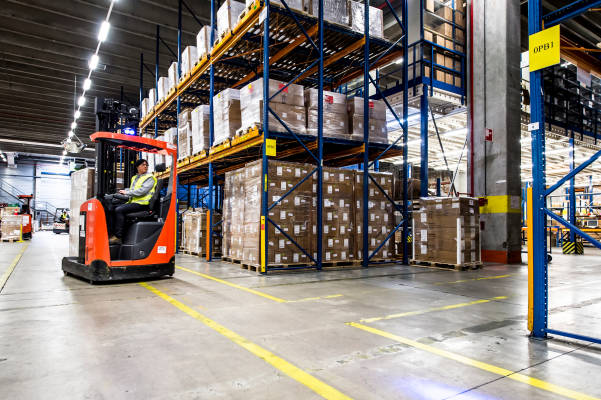

MARKETPLACE FOR MOBILITY
Urban logistics and freight transport have a major impact on mobility in the city, port and region. On the other hand they also suffer from congestion.
This leads to a sense of urgency among key stakeholders. With the Marketplace for mobility the city of Antwerp wants to actively contribute to smart and efficient urban logistics and freight transport, in co-creation with the sector.
FACTSHEET 10
LOGISTIC SOLUTIONS
Results, findings & lessons learned
More info
Context & challenges
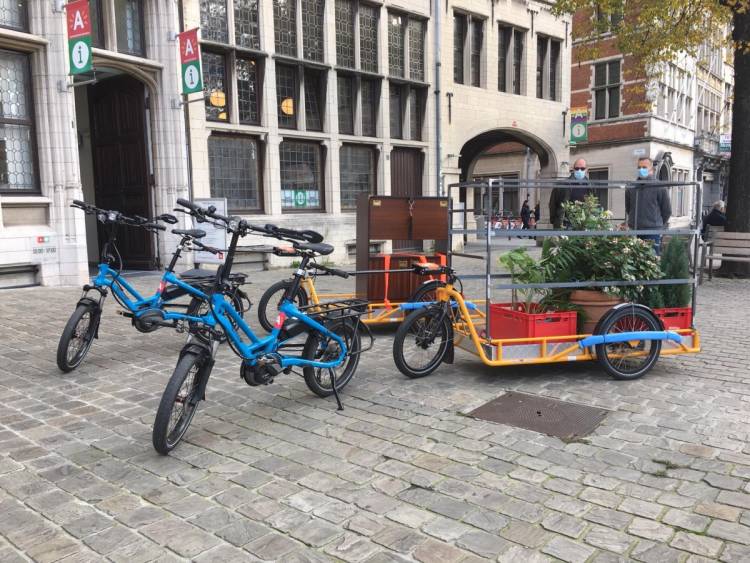
CONTEXT & CHALLENGES
The specific objectives of this measure are:
A reduction of logistic/freight road trips in congestion-affected areas in the city and port of Antwerp. The aim is to facilitate 20 projects in total during the CIVITAS PORTIS project which would lead to a reduction of 3.100 truck rides/year/project.
The measures includes:
A. Creation of a cooperation platform - marketplace for mobility:
With the development of a cooperation platform, i.e. the Marketplace for Mobility (aimed at solutions for both passenger and freight transport), the city of Antwerp takes the lead and supports organizations, companies, retailers, catering industry and small businesses to develop sustainable logistic solutions for their freight movements. Interested parties can become partner of Smart Ways to Antwerp and receive communicational support. Next to that, the city also regularly launches project calls, looking for passenger and/or freight transport solutions. The selected projects receive active support from Smart Ways to Antwerp. This can include financial support as well, which is a result-based cash-back model. Selected projects receive funding only if they deliver what they promise in their KPIs. In the long-term, the goal is for the target groups.
- Efficient city logistics: bundling of goods and eco-friendly inland waterway transport.
- Avoiding empty shipping containers on the city roads by using drop-off/pick-up depots outside the city.
- Avoiding traffic in congested city areas by opening urban delivery hubs outside the city.
- Encourage sustainable urban logistic solutions such as bike couriers.
- Time shift: technical & financial support for the transportation of goods during the night.
B. Know-how transfer activities:
This measure contains of analyzing best practice solutions, organizing workshops and seminars and liaise with other experts in the field.
C. Improving the communication among stakeholders:
By involving all departments and projects related to transport and mobility.
D. Development of a vision and policy:
The vision and the following SULP (= Sustainable Urban Logistics Plan) is to be developed, approved by the council and transformed into an action plan.
• Suggested consideration 1: Mapping the context and barriers in the sector beforehand can ease and speed up the process in the long term.
• Suggested consideration 2: Marketing activities such as press events can act as a driver for the successful implementation and long-term success of the measure as this increases visibility and creates ownership among all involved stakeholders.
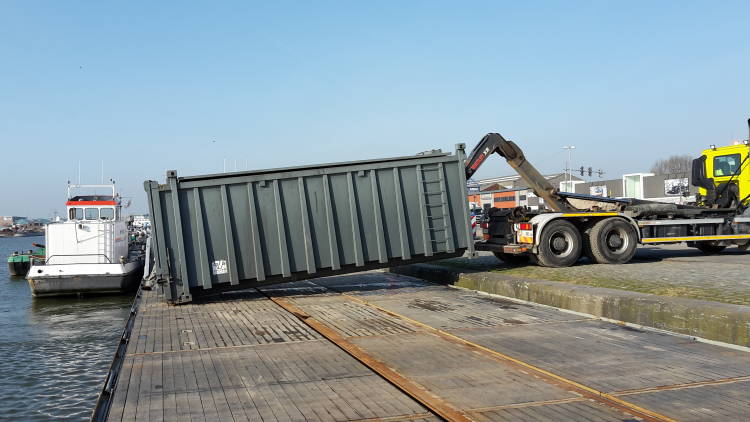
Objective and target
Rating
Comment
Reduction of freight road trips in congestion-affected areas in the city of Antwerp. We aim at facilitating 20 projects from the call for projects within the marketplace for logistic solutions in total during the CIVITAS PORTIS project which would lead to 3.100 truck rides/year/project avoided in the congestion affected area or in total 63.000 single truck rides avoided.
Thanks to the project calls in the city, the target of the Project call has been achieved and a high number of logistic trips has been avoided. There were in total 14 projects selected in these 3 project calls which is not quite the target of 20, but with regard to the number of truck rides avoided, they were exceeded with be-tween 2,688 and 4, 643 avoided rides per month. An extra call is launched in 2020 but the results will not be available within the PORTIS lifespan.
& LESSONS LEARNED
NA = Not Assessed O = Not Achieved = Substantially achieved (at least 50%) = Achieved in full = Exceeded
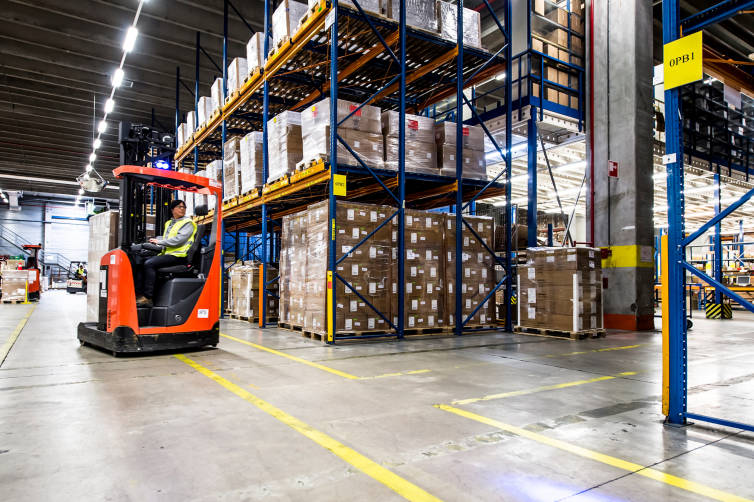
There has been a significant reduction in numbers of logistic trips thanks to the implemented measures in the three project calls during the lifetime of CIVITAS PORTIS.
• Key result 1: Political support is essential.
• Key result 2: Regular meetings between companies who benefit from the measures, decision-makers and those working on city logistics are useful to map both problems and potential solutions at an early stage, taking everyone’s opinions into account.
• Recommendation 1: The city and port of Antwerp should continue to play a leading role to support sustainable logistic solutions in order to achieve the best possible results.
• Recommendation 2: A wide network of partners is recommended in order to achieve a wide-scale impact and results.
• Recommendation 3: To gain full insight on the effects / success of the sustainable logistics projects, it would be helpful to request performance data from each partner.
